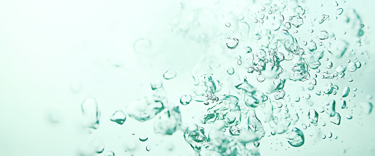No need to waste wastewater
In Denmark Arla has cooperated with the pump manufacturer Grundfos to treat wastewater from cheese production. At Rødkærsbro dairy, 1 million litres of water are now reused on a daily basis.

A big part of milk is water. 85 per cent to be exact. And in the process of making cheese from milk, dairy plants produce a lot of water.
At the Danish Arla dairy Rødkærsbro they’re making mozzarella. In doing so, Rødkærsbro dairy produces 1,250 m3 of wastewater every day, “cow water," as they call it. This cow water also includes the nitrogenous compound urea, which traditional treatment plants cannot handle easily.
In 2014, Arla Foods wanted to increase its production of mozzarella. That meant a substantial increase in cow water. Not only did this mean a substantial amount of wastewater, Rødkærsbro was also challenged by the cost of sending the water to the municipality’s treatment plant.
So they teamed up with the Danish pump manufacturer Grundfos, who’s known for developing water solutions around the world. They came up with a brilliant solution called BioBooster. This is a decentralized, stand-alone unit that cleans wastewater at its source, treating it for reuse for cheese production without jeopardising food safety.
Now, Arla in Rødkærsbro cleans 450 m3 of this purified cow water daily. The former wastewater is so clean that the dairy releases it into the local river or reuses in its facility.
Hence, Rødkærsbro avoids pumping up 750 cubic metres of groundwater every day. It has also minimized the amount of nitrogen and phosphorus in the treated water and exceeds Denmark's strict discharge limits.
As the director of Rødkærsbro dairy, Jonna Mortensen says:
Think about it. We reuse nearly a million litres of water every day – just us, one company. That makes 365 million litres of water per year. That's a lot. Worldwide, if everyone was using this technology, we could supply drinking water to most of the world.